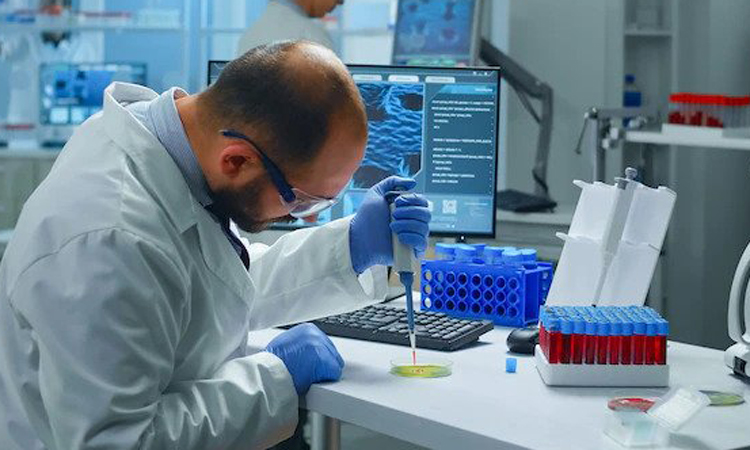
Biochemistry is a combination of the fields of biology and chemistry, and it is dedicated to the study of chemical processes that occur within living organisms. It is a part of the larger discipline of molecular biology, which seeks to describe all of the molecular interactions affecting biological phenomena, and biochemistry itself includes the more specialized subjects of structural biology, enzymology, and metabolic pathways.
Since the proper functioning of our bodies depends on the chemical processes that occur within our organ systems and individual cells, the study of biochemistry is very important for our understanding of nutrition, immunology, and more. Beyond the study of chemistry within human beings, biochemistry is also critical for understanding other living creatures, including the development of biotechnology applications that seek to harness organisms like algae and bacteria to produce pharmaceuticals, fuels, and other valuable substances.
A background in biochemistry can be an asset for a variety of careers in healthcare, such as nutritionists who seek to discover and explain the relationships between types of food, digestion, metabolism, and overall health. It’s also critical for doctors, immunologists, and pharmaceutical researchers who must understand the ways that our normal biochemical processes may fail and how to develop safe treatments to remedy these conditions.
Given the extraordinary complexity and importance of this field of study, pursuing a career as a biochemist requires an extensive education. Typically, biochemists start with a bachelor’s degree in biology or chemistry and go on to secure a Ph.D in biochemistry. In fact, many biochemists begin their careers in temporary post-doctoral research positions.
People interested in studying the origin of disease, cell development, heredity traits, and growth are good candidates for learning biochemistry. Biochemists play an integral part in the study and treatment of cancers and diseases, so people learning biochemistry should have an interest in medicine. People learning biochemistry may need to spend a lot of time reading peer-reviewed research and present their own findings to colleagues via research papers and conferences. Additionally, people who are interested in genetics are great candidates for learning biochemistry.
